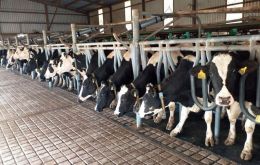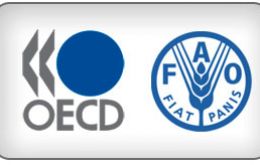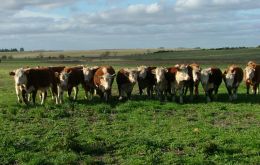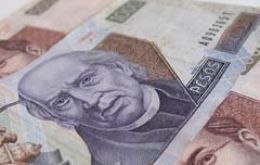MercoPress. South Atlantic News Agency
Tag: commodities prices
-
Thursday, August 5th 2021 - 18:45 UTC
Food prices fall slightly in July for the second month running, FAO report

Global food commodity prices fell in July for the second consecutive month, according to the benchmark United Nations FAO report. The FAO food price averaged 123.0 points in July 2021, 1.2% lower than the previous month although still 31.0% higher than its level in the same period of 2020.
-
Tuesday, July 5th 2016 - 07:21 UTC
OECD-FAO forecasts agriculture prices will remain relatively flat overall in next decade

The recent period of high agricultural commodity prices is most likely over, say the OECD and FAO in their latest 10-year Outlook. But the two organizations warn of the need to be vigilant as the probability of a major price swing remains high.
-
Thursday, February 23rd 2012 - 05:03 UTC
Inflation, over-valued currency and threat to exports, Uruguay’s 2012 challenge

Inflation and an over valued currency are among the main challenges faced by the Uruguayan economy this year in the framework of a global recession which threatens the country’s exports
-
Monday, April 11th 2011 - 21:04 UTC
IMF optimistic report but warnings about overheating in emerging economies

The global economic recovery is gaining strength, with world growth projected at about 4½ percent in both 2011 and 2012, but unemployment remains high, and risks of overheating are building in emerging market economies, the IMF said in its latest forecast.
-
Thursday, March 24th 2011 - 07:14 UTC
Argentine economy growing strong, benefits from imports’ restrictions

Argentina's industrial output rose sharply and the trade surplus beat market expectations during the month of February signalling that the economy is still growing strong.
-
Wednesday, February 16th 2011 - 22:53 UTC
Mantega reiterates opposition to French plan for commodity prices regulation

Brazil reiterated opposition to a French plan to impose regulation on commodity prices, saying it could have “negative effects” on major suppliers such as itself. “Brazil is totally opposed to a mechanism of control or regulation of commodity prices,” Finance Minister Guido Mantega told reporters, reiterating a position he gave last week.
